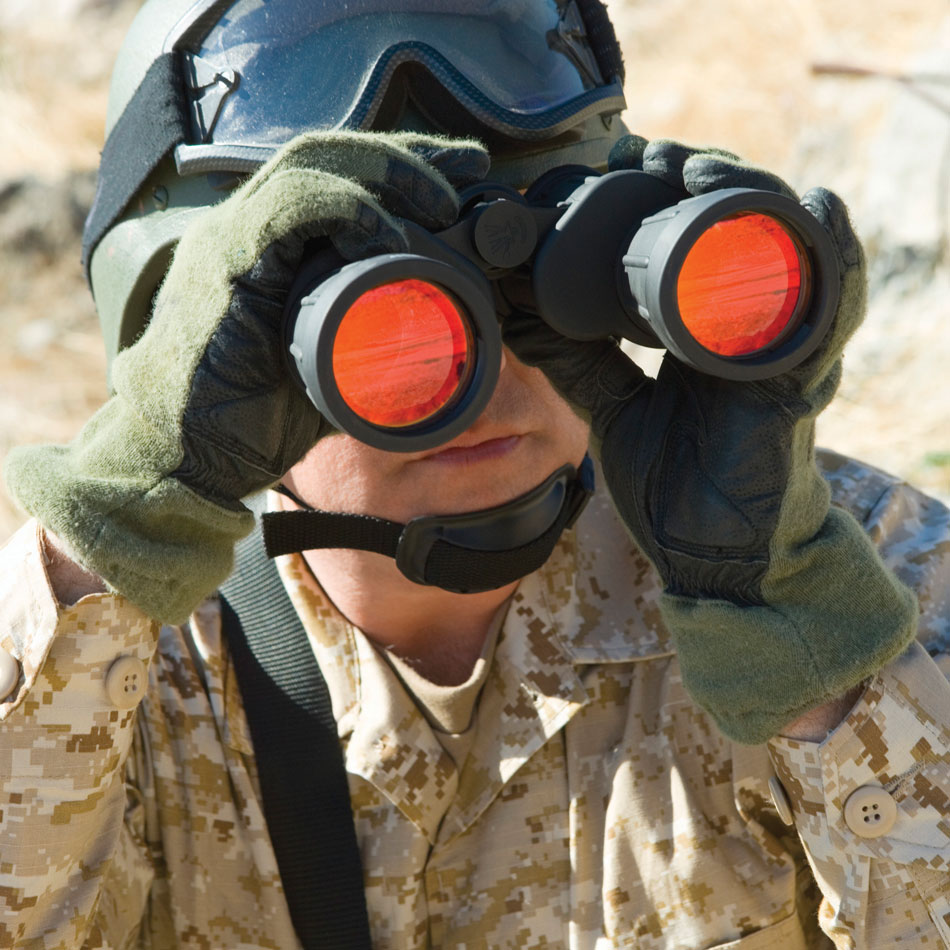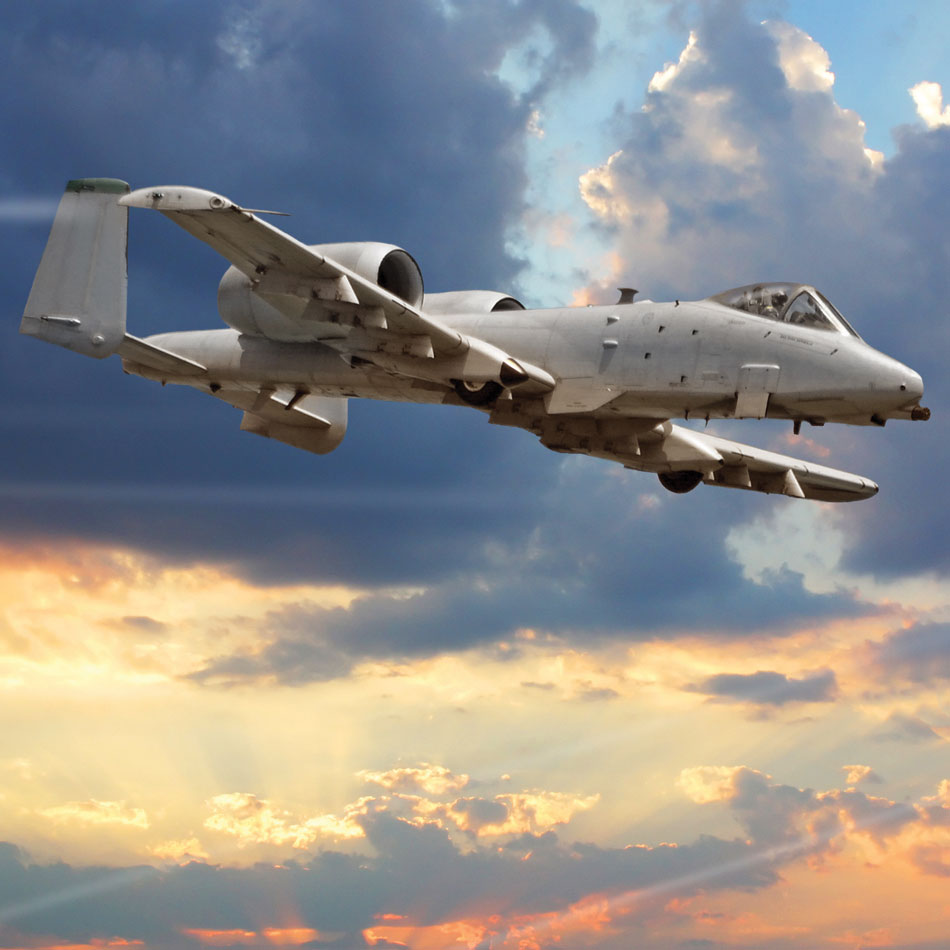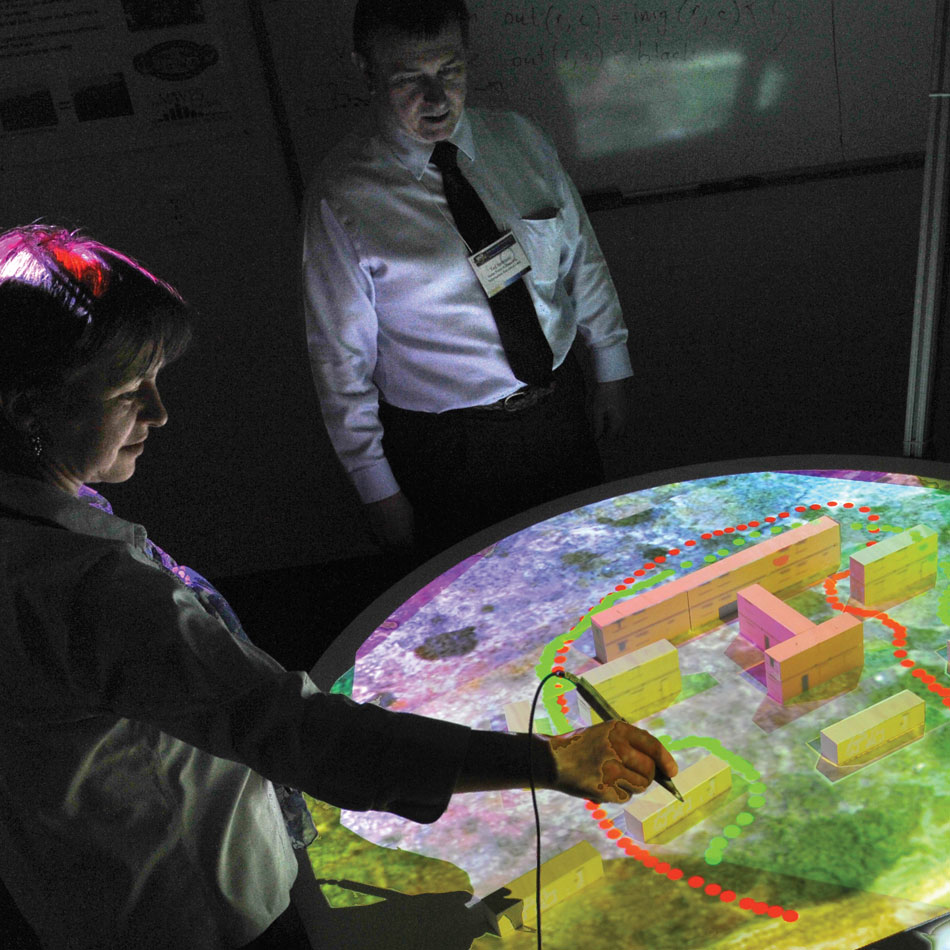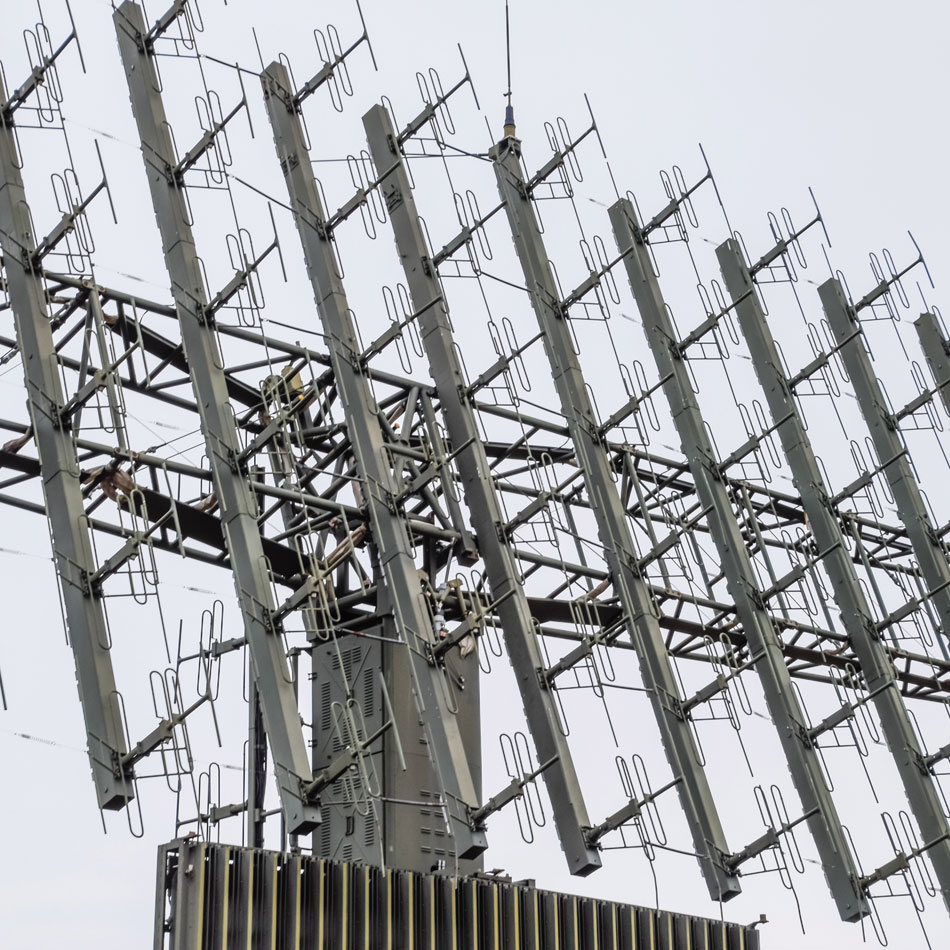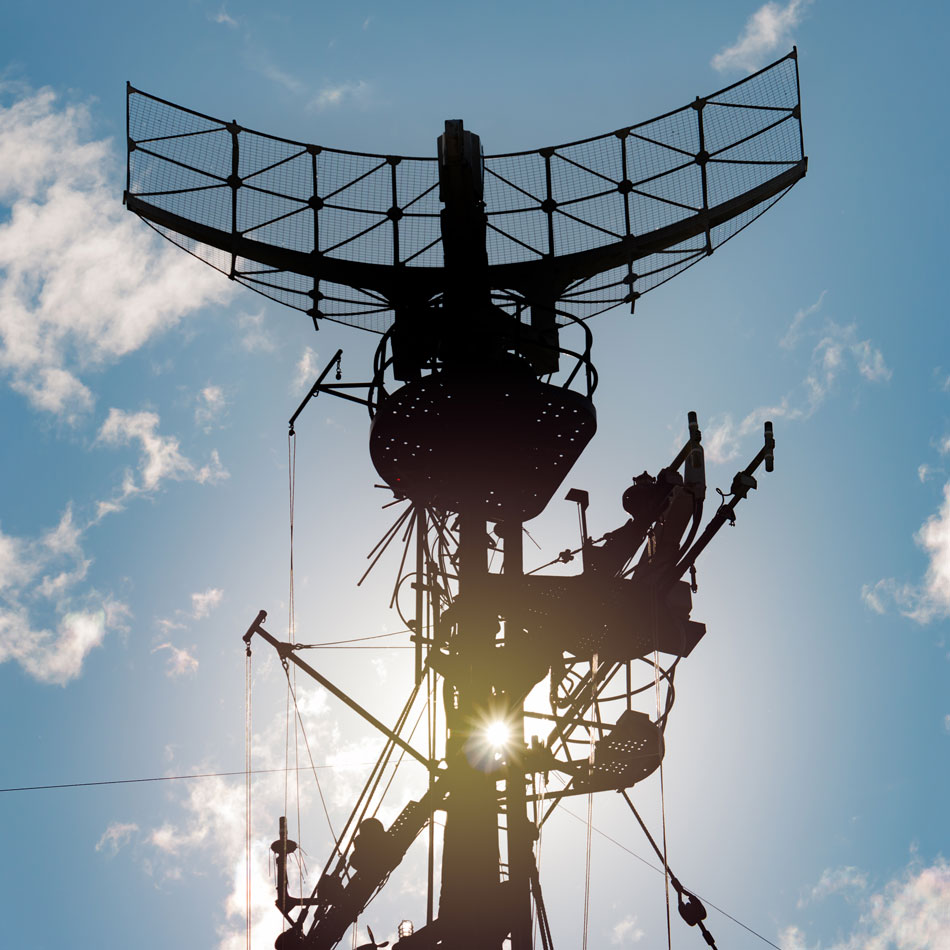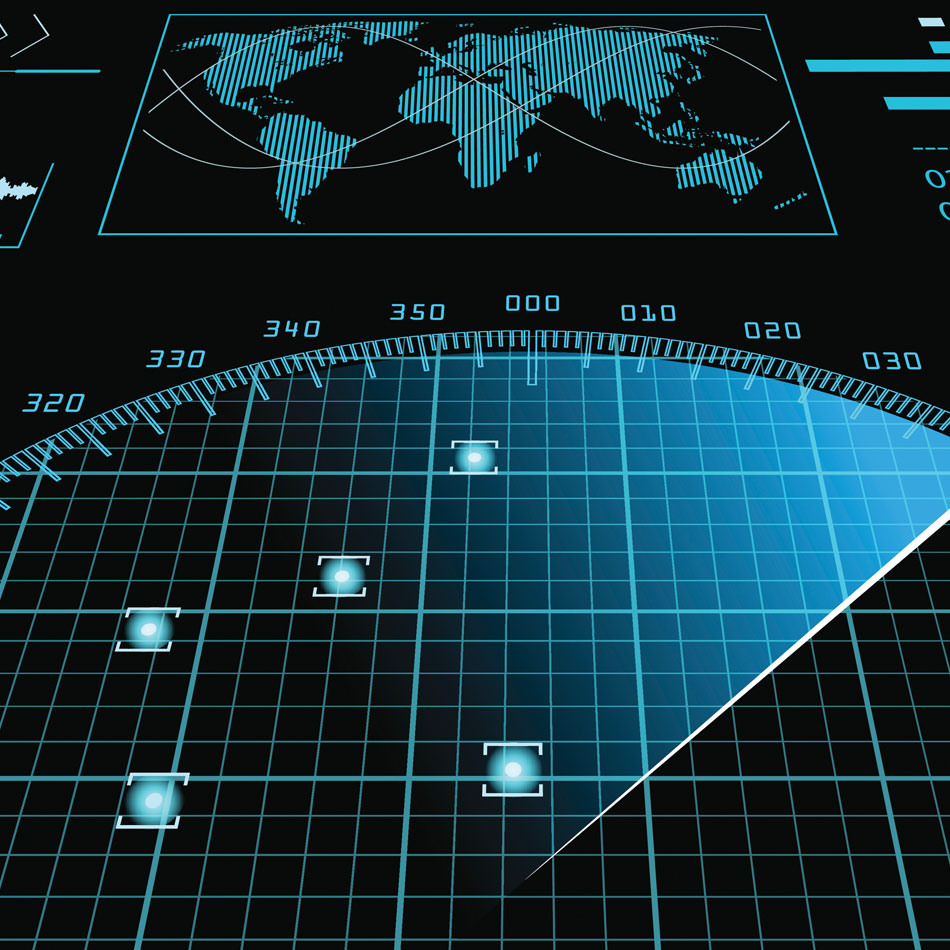Infrared & Electro-Optical Technology Certificate
- Overview
- Program Requirements
- Why Choose a Certificate?
Delivery Method
ClassroomInfrared & Electro-Optical Technology Certificate
Discover how infrared and electro-optical systems operate and understand how to assess their strengths and limitations. With the Infrared & Electro-Optical Technology Certificate you'll learn from current experts in the field and find out about developing technologies straight from the designers.
Program Requirements
Certificate Requirements
- Effective January 2015, courses can only be applied to one certificate. If a core course for a certificate has already been applied to a previously-awarded certificate, then an additional elective must be taken.
- Certificates must be completed within 6 years; courses completed more than 6 years ago may not be applied toward certificate.
- All courses applied to a certificate program must be taken from Georgia Tech.
- This certificate does not require an application.
How it works
Your path to achievement is easy! Most certificate courses are offered in classroom locations around the U.S. You can also inquire about training at your location.
Cost
- Course load determines the cost of a certificate program.
- Calculate your total by identifying the courses needed and tallying individual course fees. Some programs offer discounts for course bundling.
Registration
- Select a certificate program, review the requirements, and determine your timeline for completion.
- Add courses to your shopping cart for purchase as you are ready to take them, or as a bundle if desired.
- Proceed to checkout to complete your registration. We accept multiple forms of payment including credit card, purchase order, and a private loan (upon request).
Completion
- Certificates must be completed within six years.
- After successful completion of most individual courses, a Certificate of Course Completion will be sent.
- After successful completion of all required courses, request a transcript and program certificate audit.
- Upon verification, GTPE will email your transcript and mail your Certificate of Program Completion. Some programs host a certificate award ceremony during the final course.
Once you earn your Georgia Tech Program Certificate, tout your success on your resume and LinkedIn profile, share with your employer, and celebrate an important career growth achievement!
Why Choose a Certificate?
Professional Certificates are ideal for developing new skills and building deep expertise in a specialized area to update your professional profile, advance your career, or broaden your knowledge base.
Certificates are an “anytime” credential
Start anytime - after graduation or later in your career - and gain deeper know-how in a specific area without the commitment to a degree.
Certificates demonstrate commitment
The dedication of time to earn a certificate demonstrates that you are committed to achieving a higher standard of professional knowledge in your industry.
Certificates provide immediate “ROE”
Georgia Tech learners master real-world skills and apply them to their career the day after completion.
Certificates stand out on your resume
A Georgia Tech credential carries the professional weight to give you a competitive edge.
Who Should Attend
This certificate is designed for aerospace engineers who build targeting systems and survivability suites, plus chief engineers, applications engineers, procurement engineers, and directors of engineering. Government intelligence analysts, military officers, program managers, and marketing staff will also find this certificate beneficial.

How You Will Benefit
- Build your proficiency in infrared and electro-optical technology and make an immediate impact on your team, your work, and your career.
- Establish and deepen contacts with experts, peers, and others throughout industry and government.
- Earn a recognized industry credential.
-
Grow Your Professional Network
-
Taught by Experts in the Field
Course Offerings
By taking this course, you'll gain an in-depth understanding of military infrared, electro-optical, and laser countermeasures. Understand the issues, principles, and equipment designed to defeat weapons operating in the visual and infrared spectral regions. Focus on techniques that reduce the…
View Course Details »-
May 11, 2026 - May 14, 2026Register By May 4, 2026Atlanta, GA$1,995
In the Infrared Technology and Applications - Open Access course, you will explore infrared systems engineering with an emphasis on military systems. Examine problem-solving, design, and analysis techniques with emphasis on experience-based rules of thumb and develop a perspective for…
View Course Details »There are no sessions scheduled at this time. Please check again later.
This course is an introductory tutorial on Infrared Systems Engineering. It is identical in content and duration to its companion course, Infrared Technology and Applications – Open Access, except it includes DoD information limited to government agencies and their contractors. It is intended…
View Course Details »-
Apr 14, 2026 - Apr 17, 2026Register By Mar 24, 2026Atlanta, GA$1,795
-
Sep 22, 2026 - Sep 25, 2026Register By Sep 8, 2026Atlanta, GA$1,795
Learn how to evaluate infrared and visible signature management techniques for your system. In this Infrared/Visible Signature Suppression course, you will have the chance examine threat characteristics to derive signature vulnerabilities, suppression strategies, and priorities. Furthermore,…
View Course Details »-
Mar 17, 2026 - Mar 20, 2026Register By Mar 5, 2026Atlanta, GA$2,095
DEF 3002P or DEF 3010P may be used, but not both.
Light detection and ranging (LIDAR) is used for several applications and is analyzed for subsystems (transmitter, receiver, and data acquisition). This course will help you understand how LIDAR techniques are used to characterize various atmospheric constituents and parameters. By the end of…
View Course Details »There are no sessions scheduled at this time. Please check again later.
Get well-acquainted with the basics of electro-optical/infrared systems (EO-IR) sensor and system design and the uses of this technology across various applications through this introductory course. From requirements flow down to hardware testing, all of the elements of an EO-IR sensor/system…
View Course Details »-
Jun 2, 2026 - Jun 4, 2026Register By Mar 18, 2026Las Vegas, NV$2,195
The threat posed by infrared-guided missiles on the United States and other countries makes countermeasures increasingly important in the world of defense. In this Directed Infrared Countermeasures course, you will begin by reviewing the history of directed infrared countermeasures and…
View Course Details »-
Apr 14, 2026 - Apr 16, 2026Register By Apr 7, 2026Shalimar, FL$1,795
-
Jun 23, 2026 - Jun 25, 2026Register By Jun 15, 2026Warner Robins, GA$1,795
Discover how to best execute the test and evaluation of airborne electronic combat (EC) systems. In this Electronic Combat Flight Testing course, explore threats and EC defensive systems, the EC test process, test monitoring equipment and test facilities, the role of modeling and analysis, and…
View Course Details »There are no sessions scheduled at this time. Please check again later.
Although Light Detection And Ranging (lidar) systems have been around since the invention of the laser, these instruments have seen remarkable development and deployment in the past decade. From their use as part of the sensor suite for autonomous vehicles for navigation, to their use in…
View Course Details »-
May 4, 2026 - May 7, 2026Register By Apr 27, 2026Shalimar, FL$1,895
Multispectral and hyperspectral imaging techniques represent methods of remote imaging spectroscopy that rely on natural radiation sources in an uncontrolled environment. This course explores remote spectral-sensing techniques and examines significant technical issues associated with…
View Course Details »-
Aug 11, 2026 - Aug 13, 2026Register By Aug 6, 2026Atlanta, GA$2,195
This introductory course offers an overview of intelligence, surveillance, reconnaissance (ISR) enabling technologies, systems engineering, and test and evaluation (T&E). You will discover technical issues related to measures of performance, test planning, instrumentation, and sensor/system…
View Course Details »There are no sessions scheduled at this time. Please check again later.
Vehicles, buildings, and terrain targets are all of great interest to the military and intelligence communities. Laser radar (LADAR) is an active remote sensing technique with many applications, and is used to acquire environmental data, including polar ice cap thickness and forest biomass. In…
View Course Details »There are no sessions scheduled at this time. Please check again later.
Gain a true understanding of military laser principles and applications. In this course, you will review and understand the fundamental physics and technology of underlying laser and laser-based systems, including basic operating principles and device capabilities. What's more, you will…
View Course Details »-
Jul 13, 2026 - Jul 16, 2026Register By Apr 29, 2026Las Vegas, NV$2,295
Build upon your foundational knowledge of missile design and system engineering. In this course, you will identify key considerations, including the broad range of alternatives in meeting performance, cost risk, and other measures of merit requirements such as robustness, lethality, guidance,…
View Course Details »There are no sessions scheduled at this time. Please check again later.
In this course, you will develop the techniques of modeling and simulation for modern electro-optical and infrared (EO/IR) systems. Learn modeling techniques to sensor systems design, analysis, test and evaluation, and performance assessment. Plus, cover basic EO/IR physics principles,…
View Course Details »-
May 5, 2026 - May 7, 2026Register By Apr 30, 2026Atlanta, GA$2,195
This course emphasizes first-order, system-level estimates of optical performance. Building on the basic principles of optical design, you will study numerous practical examples to illustrate the systems-engineering processes of requirements analysis, feasibility and trade studies, subsystem…
View Course Details »There are no sessions scheduled at this time. Please check again later.
The following courses are no longer offered but still apply if completed within the six-year rule:
- EO/IR Polarimetric Imaging (DEF 3004P)
- Hyperspectral Imaging (DEF 3003P)
- Modeling Target Acquisition with Electro-Optical Imagers (DEF 4008P)
Related Certificates




